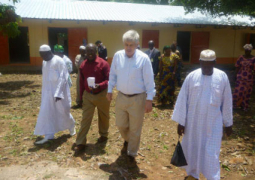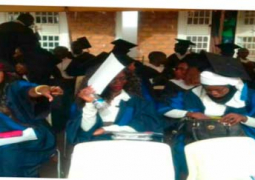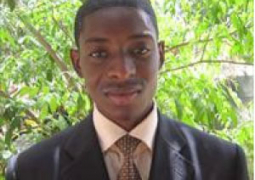The Ministry of Energy on Tuesday organised a daylong workshop on multifunctional platform approach and concept on energy at the Paradise Suites Hotel.
Delivering a statement on behalf of the Minister of Energy, Demba S. Bah, deputy permanent secretary, said Africa in general and West Africa in particular is challenged with increasing access to modern energy services, energy security and climate change.
Deputy Permanent Secretary Bah recalled that in 2005, authorities of Heads of State and Government adopted a regional policy to increase access to energy service known as ECOWAS White Paper.
The objective of the White Paper is to increase access to modern energy service of rural and peri-urban populations, to provide by 2015 access to modern energy services to at least half of the populations living in rural and peri-urban areas.
He went on to say that the workshop aimed at creating the necessary awareness to national stakeholders on the concept of multifunctional platform (MFP).
“Most Gambian rural women spend very long hours collecting fuel wood, processing as food or others doing other household chores and as a result the girl child is forced to stay at home to help carry out such activities.”
Bah noted that the performing of household chores leaves most rural women with very little time to engage in productivity or economic activities.
He disclosed that the multifunctional platform as the name implies is multifunctional and multi-sectoral in nature.
The platform has a diesel engine that powers different tools, machines such as cereal grinding mill, de-huskers, and battery chargers.
He explained that energy is not an end in itself but a means to an end. It fuels agriculture, industry and commerce and also supports social services such as education, communication and health service.
Poverty cannot be reduced significantly without access to affordable, reliable and modern and sustainable energy services.
It is flexible and can be adapted to specific needs of each village such as electricity for lightening and to pump water, he said.
DPS Bah added that The Gambia government remains committed to providing increased access to modern energy services for not only the urban centres but also the rural and peri-urban areas residents within The Gambia.
Mr Bah cited the Rural Electrification Programme, the West Coast Region Electrification, the development of the Renewable Energy Bill and National Electricity strategy as testimonies of Gambia government commitment to increased access to modern energy services.
He disclosed that five communities in five regions, namely Kandunku in WCR, Manduar in LRR, Mureh Kunda in URR, Karantaba Wollof in CRR and Sitanunku in NBR, would benefit from the pilot programme.
He also used the opportunity to applaud the UNDP for supporting the country’s energy sector.





